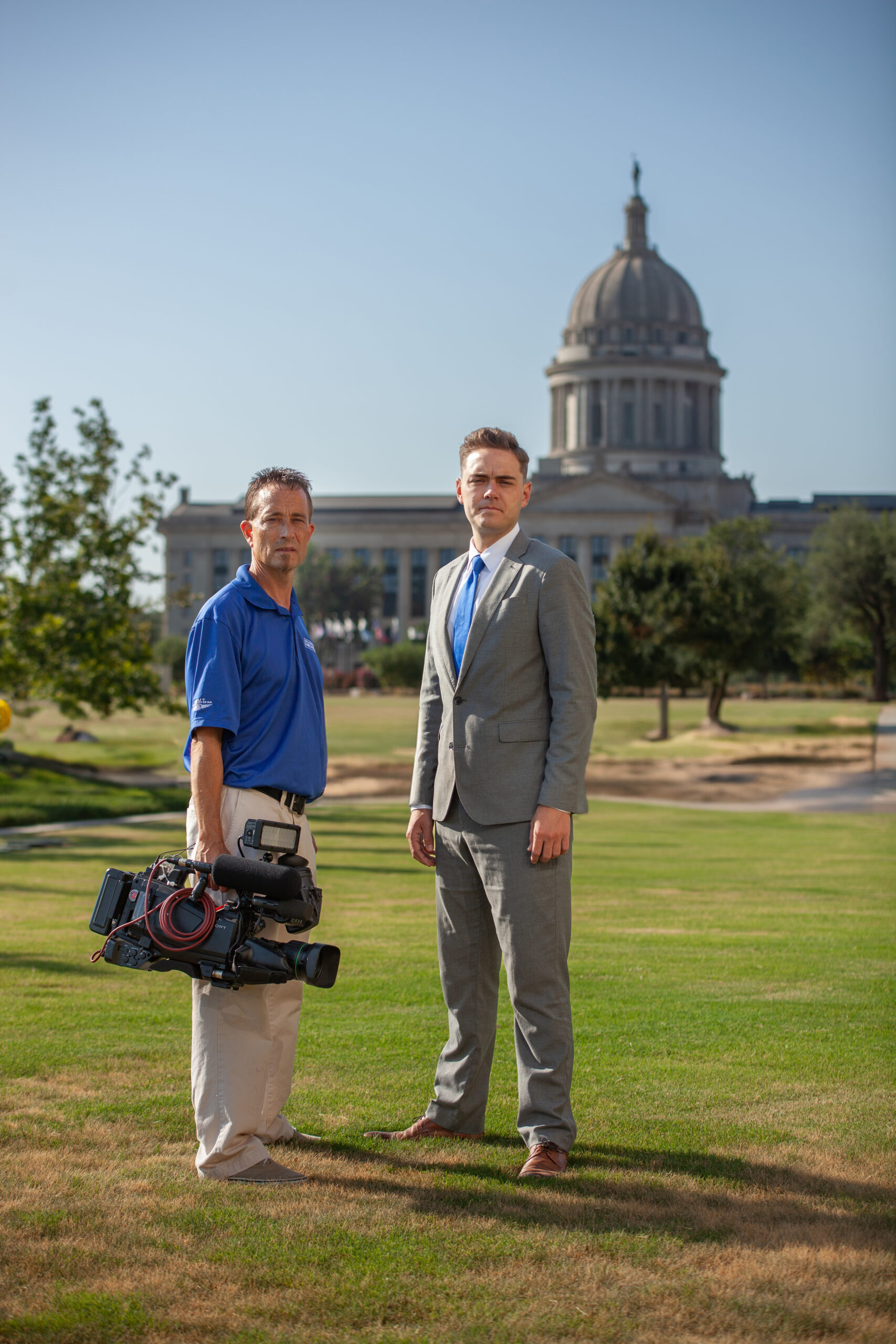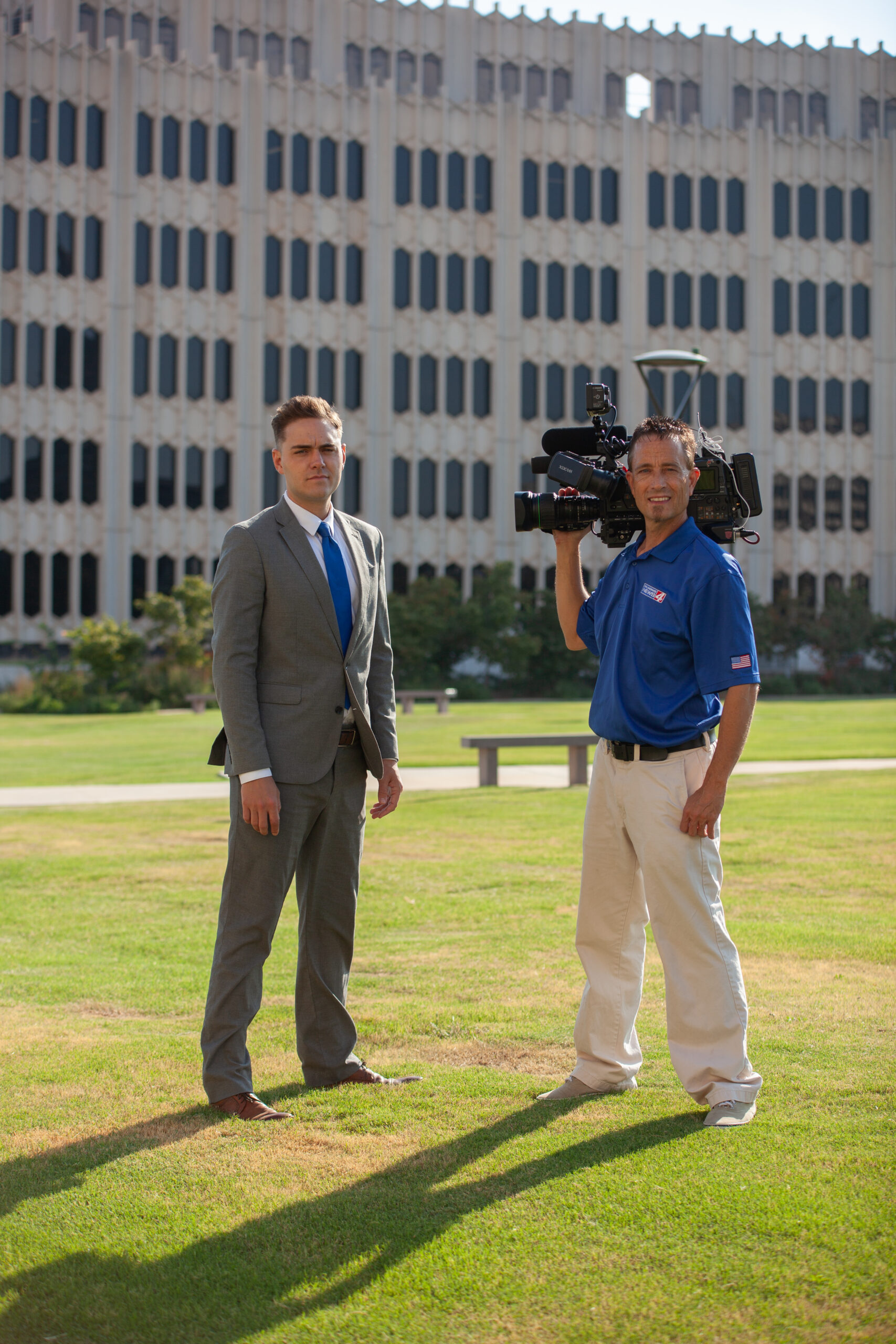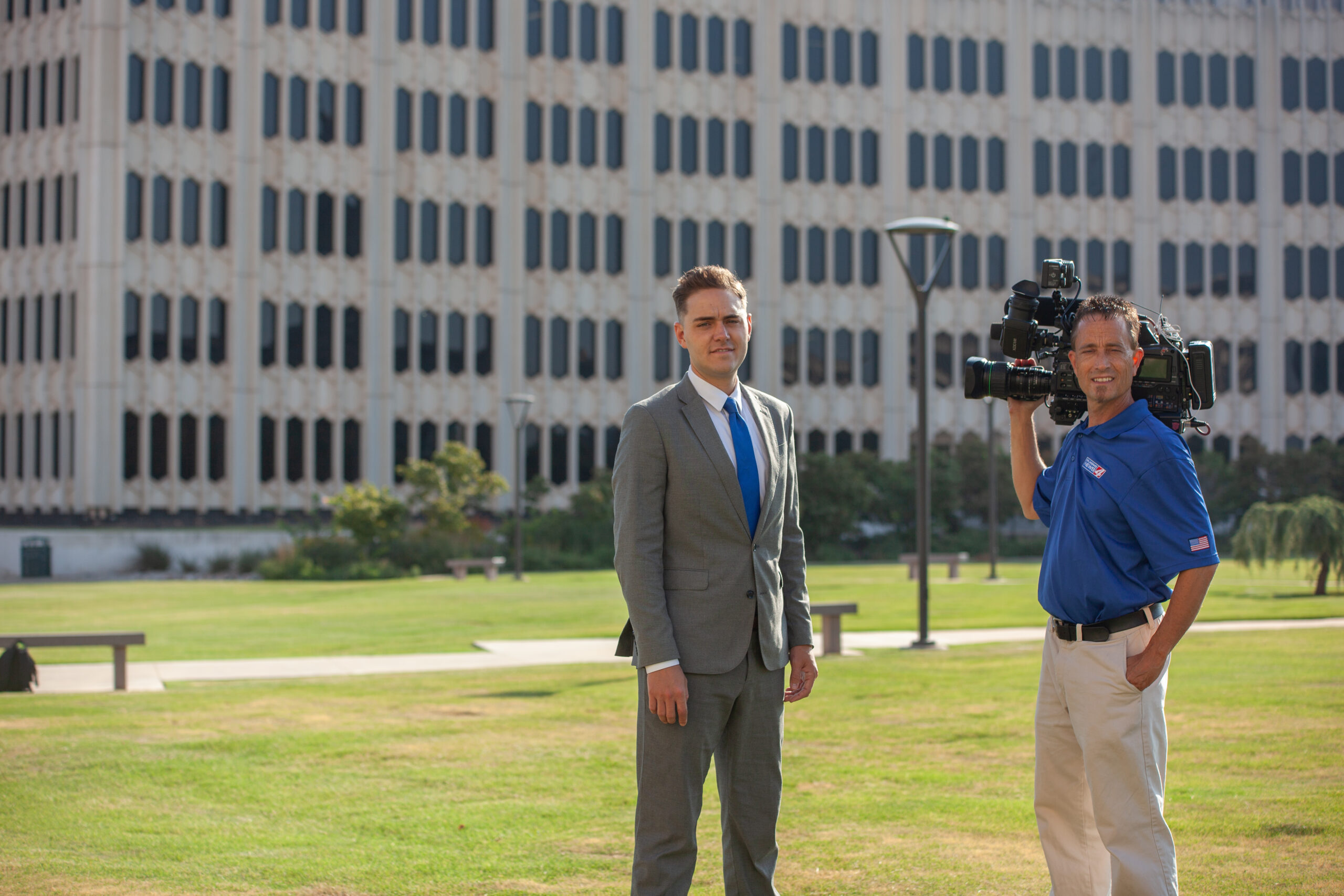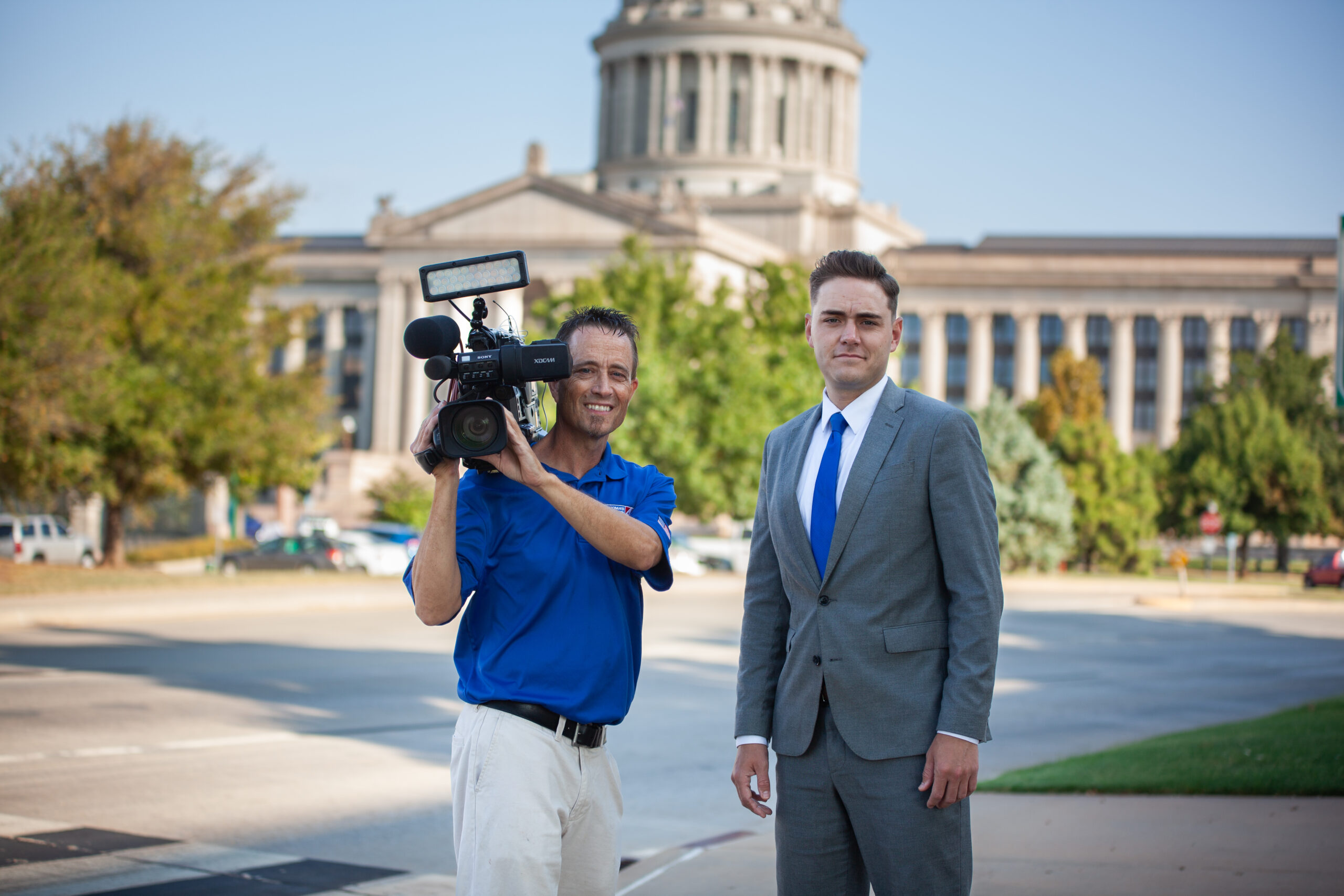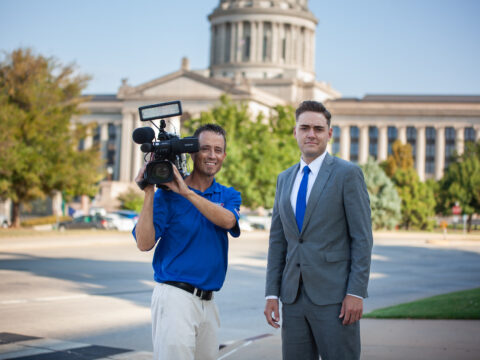For photos and video of our clients, please scroll to the bottom of this page.
Oklahoma Television Station Fights to Preserve Press Freedoms
Dylan Brown never imagined his role as a “Capitol Bureau” reporter for Oklahoma City’s KFOR-TV would lead to physical confrontations and denial of access to public officials.
Yet, that’s exactly what he’s experienced repeatedly while trying to cover Oklahoma State Department of Education (OSDE) board meetings and Superintendent Ryan Walters’ press conferences.
This is the pivotal battle that’s unfolding in the heart of Oklahoma—a battle to determine whether the First Amendment’s promise of a free press will endure in the face of arbitrary government action.
KFOR-TV, the state’s oldest television station, finds itself in a fight for basic First Amendment rights. Since 1949, KFOR-TV has been a standard-bearer of journalism in Oklahoma, but it now faces an unprecedented challenge: state officials excluding the outlet from covering vital government proceedings.
On September 23, 2024, this conflict compelled KFOR-TV’s parent company and three of its reporters to file a federal lawsuit against Oklahoma Superintendent of Public Instruction Ryan Walters and Oklahoma State Department of Education Press Secretary Dan Isett. The suit, “Nexstar Media, Inc. d/b/a KFOR-TV, et al. v. Ryan Walters, et al.,” seeks to end what KFOR-TV and its journalists see as unconstitutional exclusion from public events.
Brown, a reporter and weekend anchor for KFOR-TV, has a first-hand understanding of the stakes of this fight.
“Every day that KFOR-TV is denied access to the OSDE board meetings and Walters’ press conferences is another day that the KFOR-TV audience is being deprived of the ability to be informed and receive comprehensive news coverage,” Brown explains.
KFOR-TV’s journey from respected news outlet to exclusion began subtly. Despite holding valid press credentials issued by the Legislative Services Bureau for access to the Capitol building, KFOR-TV’s reporters found themselves increasingly sidelined. These credentials, renewed annually and accepted by every other state agency for access to government proceedings, seemed to hold no weight with Oklahoma State Department of Education officials.
On March 28th, June 27th, July 31st, and August 22nd, 2024, while other media representatives freely entered board meeting rooms, officials diverted KFOR staff to “overflow” rooms. KFOR-TV journalists could only watch proceedings via livestream, relegated to observe the events from afar while their colleagues enjoyed full access.
But the situation escalated beyond mere inconvenience. Brown recounts a chilling interaction from July 31, 2024: “As soon as Isett approached me, he placed both of his hands on me in applying pressure so as to block my movement and make me turn away from the door. I did not consent to be touched.”
This physical obstruction was accompanied by a startling verbal exchange:
Brown: “We are press.”
Isett: “You’re not…your station isn’t.”
Kevin Josefy [KFOR photographer]: “You’re saying we aren’t a legitimate news organization? Is that what you are trying to say?”
Isett: “Yes.”
The characterization of illegitimacy is sharply at odds with KFOR-TV’s storied and decorated history. KFOR News Director Natalie Hughes proudly notes that “KFOR-TV has received widespread recognition for its excellence in journalism and reporting over the years. It has won three national Emmys and dozens of regional Emmys for its transformational journalism. It has also won several Edward R. Murrow awards, given to those who demonstrate journalistic ethics and technical expertise as well as exemplify the importance and impact of journalism as a service to the community.”
The station’s accolades include a Peabody Award for its coverage of the 1995 Oklahoma City Bombing and a nomination for another for its role in exonerating a wrongfully convicted man. Earlier in 2024, KFOR-TV even received a citation of recognition from the State of Oklahoma, celebrating its 75 years of journalism and community service.
Yet, despite a rich history marked by journalism awards and recognition, KFOR finds itself inexplicably excluded from covering public government education proceedings by officials who laughably and inexplicably deem the station to be “illegitimate.”
The exclusion isn’t just a matter of pride; it has real consequences for public information. As Hughes explains, “KFOR.com gets over 44,000 website visitors daily and has over 519,000 Facebook followers, 126,000 X followers and 52,000 Instagram followers. The stories posted on KFOR.com are frequently linked to by other major media websites such as CNN, ABC, MSNBC and FOX.”
Hughes adds that, if KFOR-TV is denied its right to cover these stories for its audience, “[M]embers of that audience will inevitably seek out that information from other media sources whose reporters are allowed to attend those events.”
Preventing KFOR-TV from covering Department of Education events means that perhaps hundreds of thousands of people—or more—are unable to gain insights and information about state educational matters.
The arbitrary nature of the exclusion became even more apparent on August 16, 2024. Brown approached Superintendent Walters in a public area, identifying himself clearly: “Dylan Brown with KFOR.” The response was immediate and dismissive. Brown recounts, “As soon as I identified myself, Walters responded, ‘Oh no, no, no, no, no’ and walked away.”
In that same incident, Press Secretary Dan Isett once again resorted to physical intervention. Brown states, “Isett, again, placed his hands on me, with one hand pushing my arm back and the other hand quickly hitting me in my chest.”
When Brown persisted, asking why KFOR was being excluded, Isett’s response was telling: “There’s a reason for that.” Despite Isett’s statement, no clear reason has ever been provided.
The pattern continued on August 22, 2024. As Brown attempted to enter a press conference, he was met with the same obstruction:
Isett: “No.”
Brown: “Can you give me a reason why?”
Isett: “No.”
Brown: “I want a good solid reason why. I want a good solid reason why, sir. I want you to give me a reason why.”
Isett: “We’ll see you later.”
Brown’s frustration is palpable: “Other than being told KFOR-TV is not ‘legitimate’ news, I have never been given a specific reason why I or any other KFOR-TV employees are being excluded from the OSDE board meetings and Walters’ press conferences.”
This lack of transparency and arbitrary exclusion strikes at the heart of press freedom. As Brown points out, “Access to the Capitol complex, including OSDE board meetings and Walters’s press conferences, is a very valuable commodity. I have invested years of my professional career building the knowledge, credibility, and sources to serve in this role as a Capitol Bureau reporter, and to deliver critical news stories to the American people.”
The consequences of this unconstitutional exclusion extend beyond a single television station. Brown explains, “If KFOR-TV cannot provide reporting on the events that occur at OSDE board meetings or Walters’ press conferences to its audience, members of that audience will inevitably seek out that information from other media sources whose reporters are allowed to attend those events. This loss of viewership would be an additional harm to KFOR-TV and myself as a reporter.”
With the next board meeting scheduled for September 26, 2024, and no indication that the exclusion will cease, attorneys from the Institute for Free Speech filed suit. The Institute’s clients seek an immediate restraining order to protect not just their own rights, but the rights of all journalists to cover matters of public concern without fear of arbitrary exclusion or physical obstruction.
As Institute for Free Speech Senior Attorney Charles “Chip” Miller puts it, “The official responsible for leading the education of Oklahoma’s children is acting as a ‘superintendent of censorship’ instead of setting an example that teaches the importance of free speech.”
In a democracy, the free flow of information and the freedom of the press to report on matters of public concern is essential. When government officials can arbitrarily decide which credentialed media outlets can cover their activities, the public suffers as well by losing access to critical reporting and information.
KFOR-TV’s fight is about much more than one station’s access. It’s about preserving the fundamental principle of press freedom that has been a cornerstone of American democracy for over two centuries.
Client Photos and Video
The Institute for Free Speech grants permission to publish any of these photos with the credit, “KFOR-TV / Institute for Free Speech.”
Dylan Brown
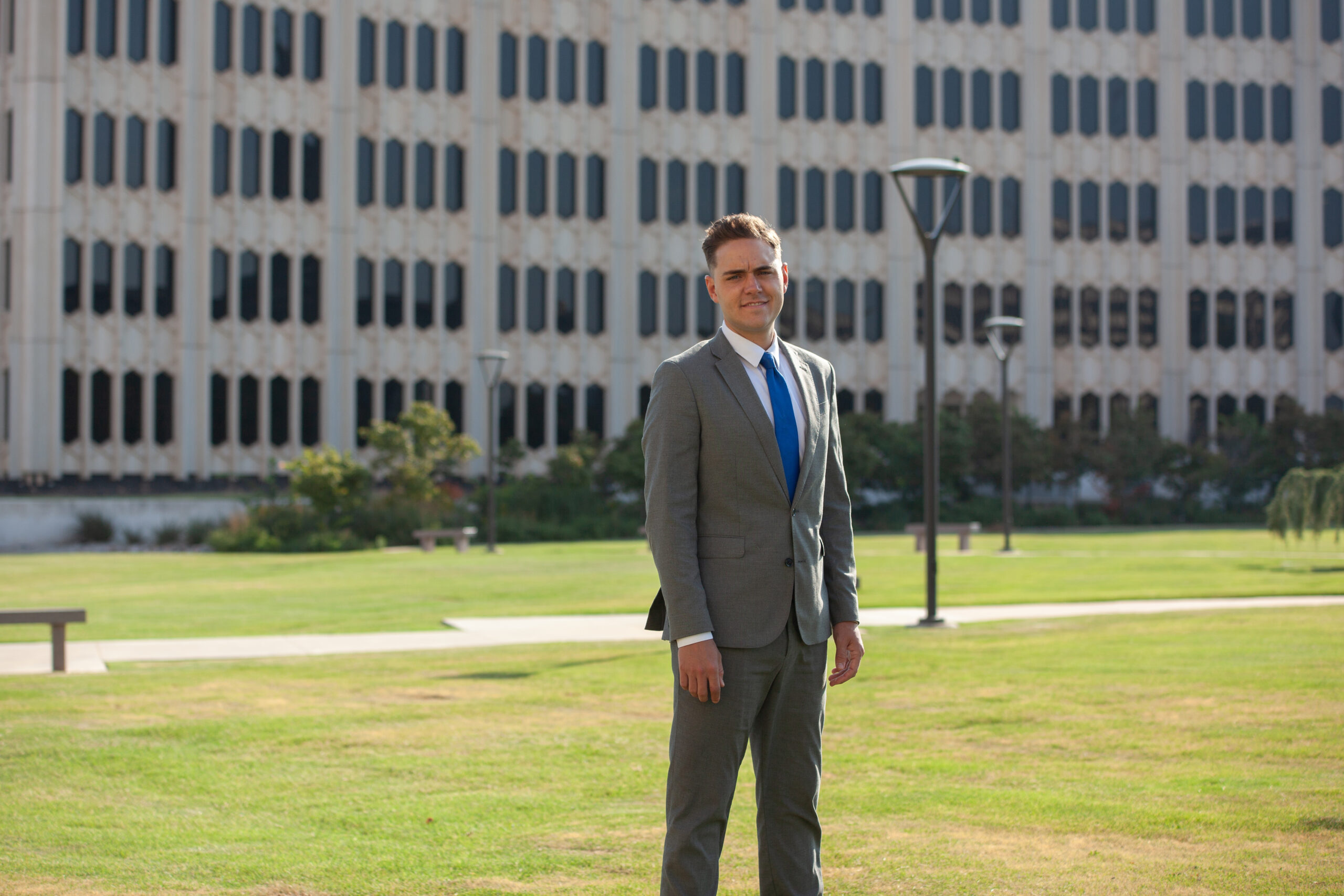
Gage Shaw
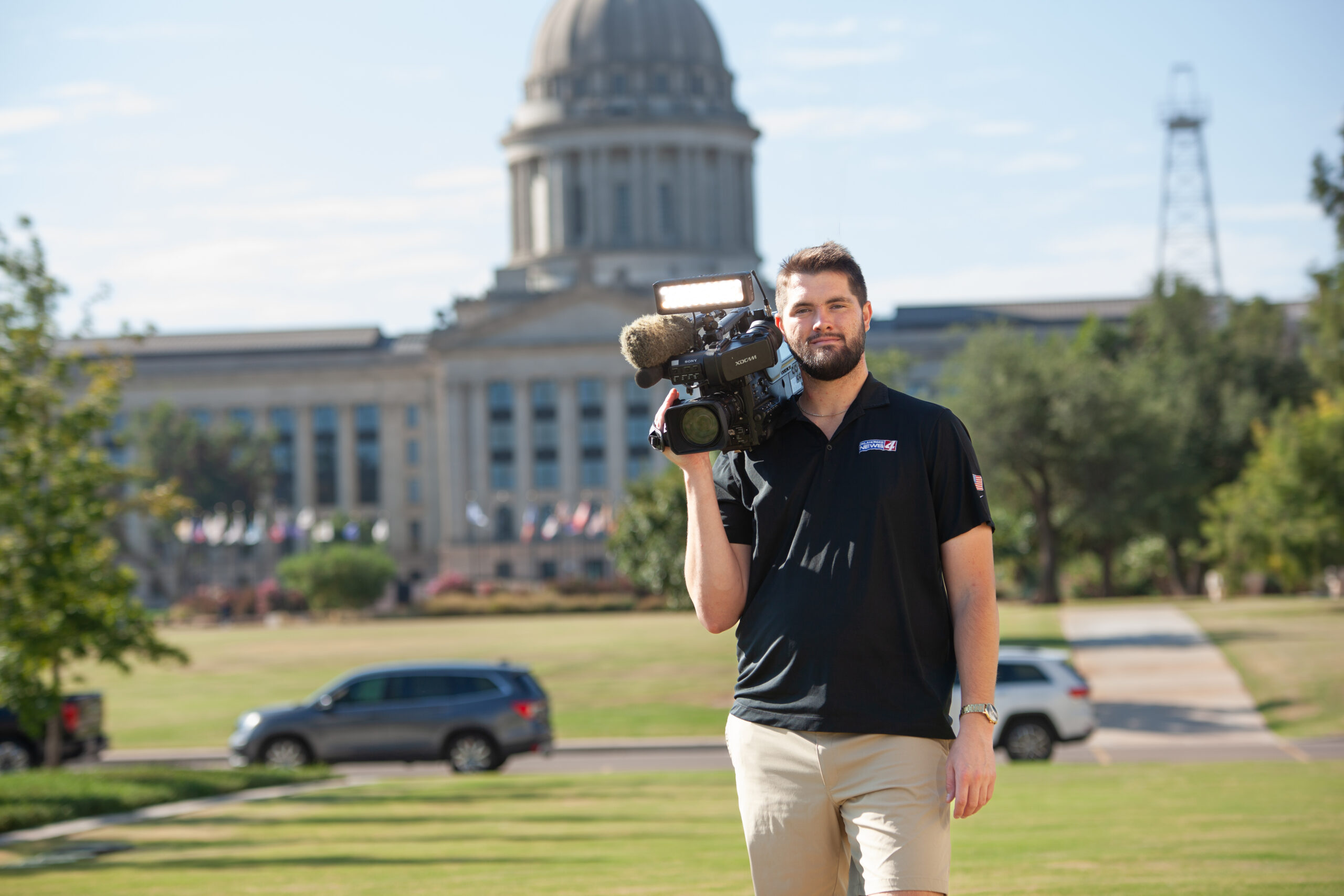
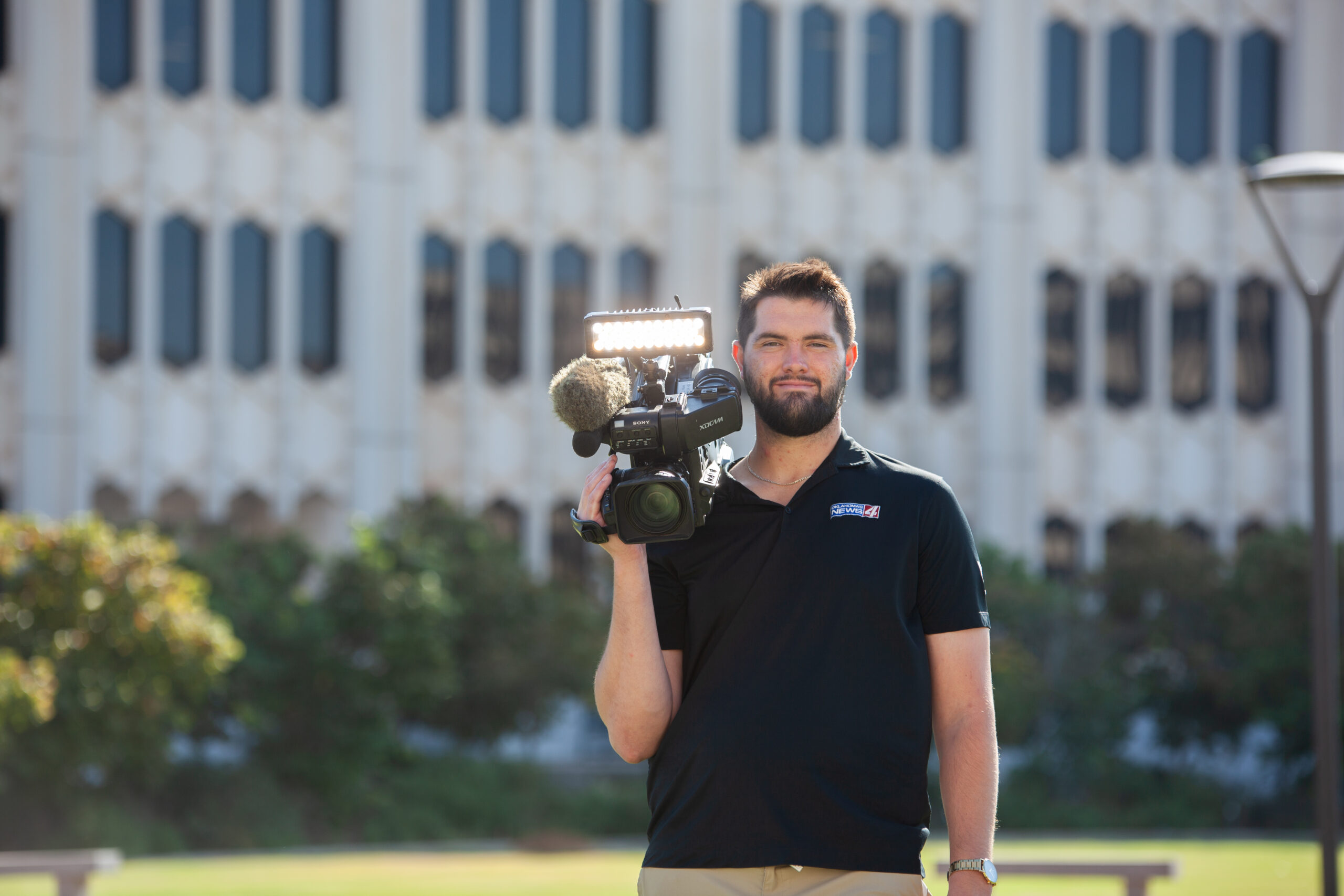
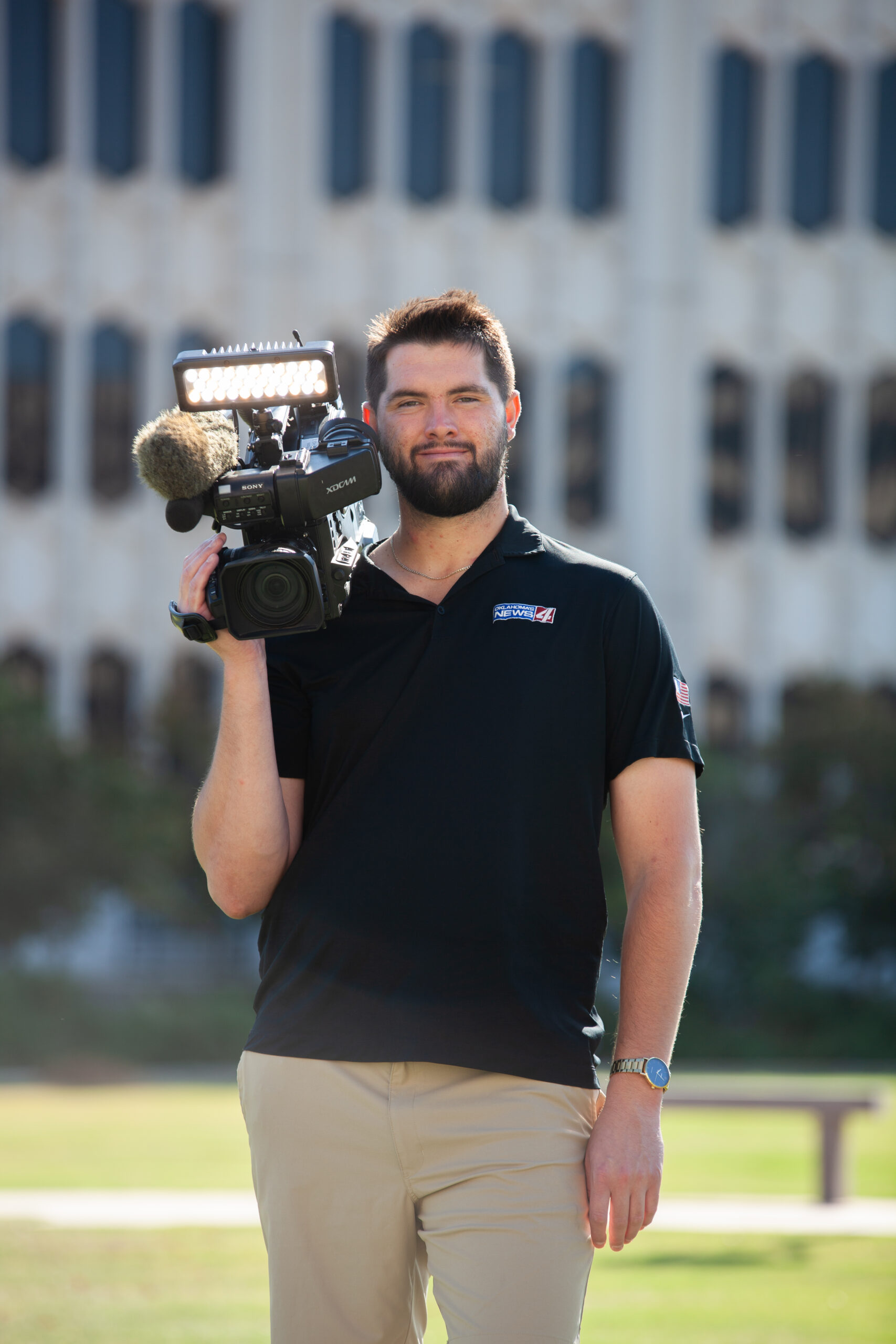
Dylan Brown and Kevin Josefy
